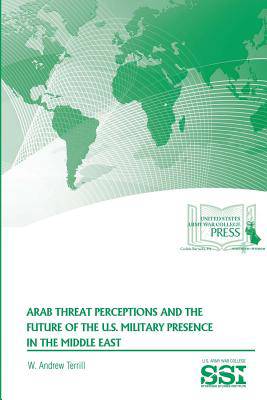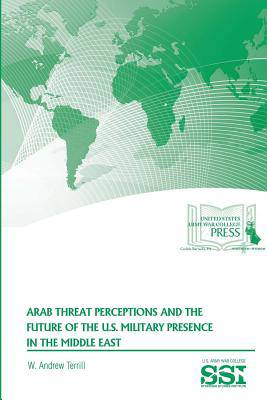
- Afhalen na 1 uur in een winkel met voorraad
- Gratis thuislevering in België vanaf € 30
- Ruim aanbod met 7 miljoen producten
- Afhalen na 1 uur in een winkel met voorraad
- Gratis thuislevering in België vanaf € 30
- Ruim aanbod met 7 miljoen producten
Zoeken
Arab Threat Perceptions and The Future of The U.S. Military Presence in The Middle East
W Andrew Terrill, Strategic Studies Institute, U S Army War College
Paperback | Engels
€ 24,45
+ 48 punten
Omschrijving
The Middle East is currently in one of its most dramatic periods of turbulence since the post-World War I emergence of the modern state system in that region. Recently, the United States and its Arab allies have been concerned by a number of distressing regional trends including the uncertain future of Iranian influence throughout the region, the rise and persistence of the Islamic State (IS) organization, the ouster of Yemen's Abd Rabbuh Mansur Hadi government from the capital of Sana'a and that country's subsequent civil war, and the rise of insurgencies in Libya, Egypt, and especially the Sinai. The intense unrest in the Middle East has created new conflicts, but it has also brought some of the regional status quo powers into a greater level of cooperation to help address these problems. Saudi Arabia has emerged as a significant regional leader, almost by default, as other important Arab states such as Iraq, Syria, Egypt, and Libya have been struggling with domestic crises.
Specificaties
Betrokkenen
- Auteur(s):
- Uitgeverij:
Inhoud
- Aantal bladzijden:
- 120
- Taal:
- Engels
Eigenschappen
- Productcode (EAN):
- 9781329784420
- Verschijningsdatum:
- 23/12/2015
- Uitvoering:
- Paperback
- Formaat:
- Trade paperback (VS)
- Afmetingen:
- 152 mm x 229 mm
- Gewicht:
- 185 g

Alleen bij Standaard Boekhandel
+ 48 punten op je klantenkaart van Standaard Boekhandel
Beoordelingen
We publiceren alleen reviews die voldoen aan de voorwaarden voor reviews. Bekijk onze voorwaarden voor reviews.











